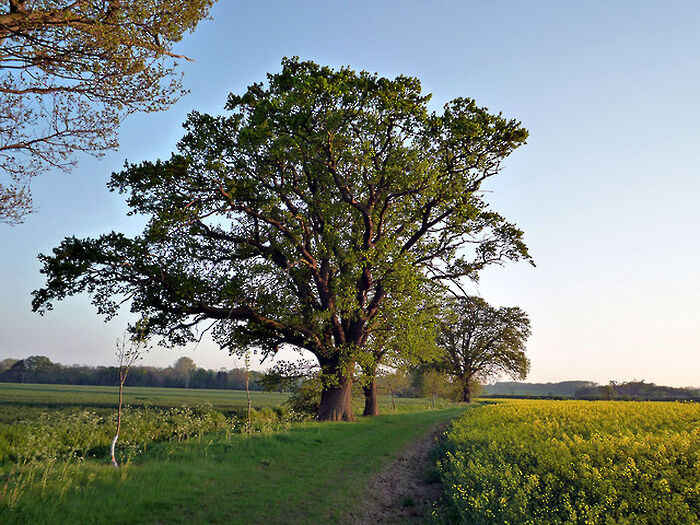University’s £1 billion development begins to take shape
Varsity’s roundup of the project’s progress so far

The first stages of the building at Eddington - Cambridge’s brand new, £350 million suburb - have been completed this week.
Swiles Court complex, which has 325 en-suite rooms purpose built for graduate students, is the first stage of the development to be finished.
The complex was built at a cost of £26 million and is being leased to Girton College for accommodation.
The accommodation complex, which was designed by award winning architects practice, R H Partnership, has a 24 hour porters’ lodge reception, a general meeting area, quiet study area, laundry facilities and shared kitchen and sitting rooms.
Swirles Court residents will also have access to three landscaped gardens which draw inspiration from traditional courts in Cambridge colleges.
Designed to be “an exemplar of sustainability”, the complex has innovative features such as solar shading screens to prevent overheating in summer and perforated window surrounds to allow natural ventilation.
Experts have described it as a “milestone” in the development of the new community at Eddington, which is set to open fully by the end of the year.
Swiles Court forms part of the first phase of the wider North West Cambridge development. As well as student accommodation, phase one also includes 700 ‘affordable’ homes for University staff and 450 homes available to buy on the open market.
The sustainable urban community will also feature green spaces and a ‘market square’ with local amenities, including a 21,000 square foot branch of Sainsbury’s which is set to provide 150 new jobs for local people.
There will also be a new community centre and performing arts centre in Eddington, called the Storey’s Field Centre.
Named after the astronomer, mathematician and physicist, Sir Arthur Eddington, the development is located in the triangle between Madingley Road, Huntingdon Road and the M11.
The development in North West Cambridge is the University’s largest single-location investment to date. Work began on the 150-hectare site in 2013, and the University is expected to invest a total of £1 billion on it by the time it is finished.
The University of Cambridge Primary School is already in use which is another addition to the site which opened in 2015.
Once completed, the entire North West Cambridge development will provide 3,000 new homes for 8,500 people, 2,000 study bedrooms for postgraduate students, and 100,000 square metres of research space.
Half of the homes will be reserved for University and College staff, with rents capped at 30% of net salaries for postdoctoral researchers and other key academics. The University plans to sell the other half in order to recoup costs.
The main aim of the development is to encourage researchers to choose Cambridge over other competing universities, particularly those in the United States.
Despite still being the highest-ranked UK university, this year Cambridge came fifth in the QS World University Rankings, behind four US institutions: Massachusetts Institute of Technology, Stanford University, Harvard University and the California Institute of Technology.
Cambridge’s acute housing crisis has proven to be an increasing obstacle for recruitment and retention at the University, as other universities offer academics more attractive financial benefits.
Since the financial crisis, house prices in the city have risen by 86 per cent, higher than anywhere outside London. The new development, with subsidised rents for academics, forms part of the University’s strategy to combat the problem.
Heather Topel, the development’s project director, said, “we know that when staff are making choices about where to pursue their career, they will consider housing and quality of life. This development is about positioning the university globally.”
As well as housing, shops and the school, the development will also feature a nursery, a doctors’ surgery and several sports pitches.
The development has a strong sustainable focus, and features a site-wide drainage system and the largest rainwater harvesting network in the country, formed from specially created lakes and lagoons.
Buildings will benefit from a special heating system, a communal underground waste and recycling network, which eliminates the need for individual wheelie bins.
In an additional sustainability measure, residents will be encouraged to grow their own food in purpose-built allotments.
The site will be connected to Cambridge city centre through new cycle paths, and each resident will have access to secure indoor cycle storage.
According to the University: “Eddington will secure the long-term success of the university by providing homes for its academic staff and students, to maintain its status as a leading academic institution on a global stage”
 Comment / Cambridge’s tourism risks commodifying students18 April 2025
Comment / Cambridge’s tourism risks commodifying students18 April 2025 News / Cambridge student numbers fall amid nationwide decline14 April 2025
News / Cambridge student numbers fall amid nationwide decline14 April 2025 News / Greenwich House occupiers miss deadline to respond to University legal action15 April 2025
News / Greenwich House occupiers miss deadline to respond to University legal action15 April 2025 Comment / The Cambridge workload prioritises quantity over quality 16 April 2025
Comment / The Cambridge workload prioritises quantity over quality 16 April 2025 News / Varsity ChatGPT survey17 April 2025
News / Varsity ChatGPT survey17 April 2025





